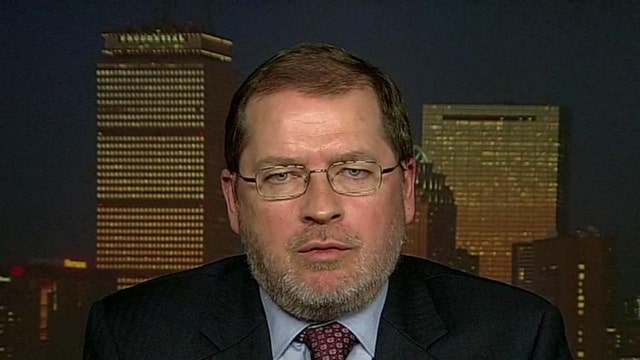What Would Margaret Thatcher Do?
As the fiscal cliff looms, as the president jets back from Hawaii and elected officials like Nancy Pelosi glumly avoid using military jets for junkets for fear of media exposure, perhaps elected officials could turn to Baroness Margaret Thatcher for inspiration about leadership and deficit reform.
The year 1981 was much like today for the now 87-year-old Thatcher, hospitalized recently to reportedly remove a growth on her bladder.
Economic decline, labor unrest, mass riots, soaring joblessness and inflation, even a royal marriage dominated Great Britain’s airwaves -- not unlike today.
The prime minister saw back then that the U.K. government had gotten too big, was stuck in the mud, that its bridge troll bureaucrats had created a state welfare clientele that kept voting miscreant, crony politicians back into office and, like the U.S., the U.K. had grown allergic to economic growth.
Great Britain had hunkered down to protect its status quo, and one of the world’s greatest nations suffered mightily. Until the new prime minister came along.
Starting in 1981, Prime Minister Thatcher pushed for higher interest rates to stop rampant inflation, as well as cutting direct taxes, deregulation, and privatizing state-owned industries and utilities. Prime Minister Thatcher and her cohort stood virtually alone in believing that no nation can tax and spend its way to economic growth.
By 1982, signs of economic recovery began twinkling, inflation cratered to below 9% from a stomach-churning 18%, though unemployment remained stubbornly high, cresting at 3.3 million in 1984 but falling by 1987.
Moreover, soon as the new prime minister moved in to Downing Street, Baroness Thatcher disapproved of unnecessary government spending on her new living quarters, official papers show. The new prime minister criticized more than £1,800 in costs for refurbishing the rooms at Downing Street, and instead indicated the intent to use just one bedroom as well as her own crockery—even insisting on paying for a £19 ironing board herself.
It would be hard to believe that the backers of the ghoulish online petition to privatize the eventual state funeral for Baroness Thatcher would still think they are not unhinged if they did just a perfunctory review of the former prime minister’s legacy in reforming Britain for prosperity.
U.S. elected officials should also revisit Thatcher’s legacy. But they won’t, because D.C. is still acting like the U.S. is in a dotcom or housing bubble fantasy land. Thanks to unbridled government spending, D.C. real estate is going like gangbusters, and the country’s top wealthiest counties are in the area. Meanwhile, the nation’s full unemployment rate is still hovering at around 15%, counting the jobless and underemployed.
It’s tempting to think what items would be on Baroness Thatcher’s wish list to reform the U.S. government. Would Baroness Thatcher immediately privatize Fannie Mae, Freddie Mac, Amtrak, the U.S. Post Office?
Would Baroness Thatcher relocate the Dept. of Education to, say, Arkansas or Mississippi, both of which have abysmal education achievement rates? Surely that move is a better job creator for these damaged states?
Would the Baroness relocate the Dept. of Interior to, say, Pennsylvania or North Dakota, both now experiencing a boom in shale oil and gas production?
Would Baroness Thatcher break up FEMA, or eradicate the Tea-Tasters Board, the Bureau of Mines? Stop federal agencies from awarding about $170 billion in noncompetitive contracts annually?
How about wiping out the massive duplication in the federal government costing taxpayers tens of billions annually?
Instead of raising $85 billion by jacking up tax rates on the upper bracket, would Baroness Thatcher advocate saving taxpayers that money by, say, consolidating the 82 teacher quality programs across 10 different federal agencies; or the 56 financial literacy programs across 20 different agencies; or the 94 federal initiatives to encourage “green building” in the private sector run by 11 federal agencies; or the 83 federal and state employment training programs?
Today too many U.S. politicians believe that government has a monopoly claim on taxpayer wallets, that raising taxes creates jobs, a “you didn’t build that,” “the private sector is doing fine,” mentality from the White House--the United States of Amnesia, as the late Gore Vidal would say. Even though Big Government’s clients will one day soon outnumber those who pay for it, as one pundit said recently.




















